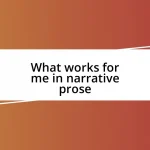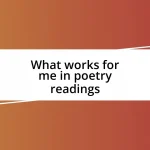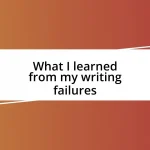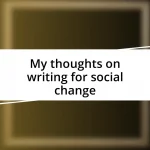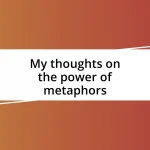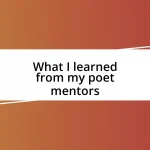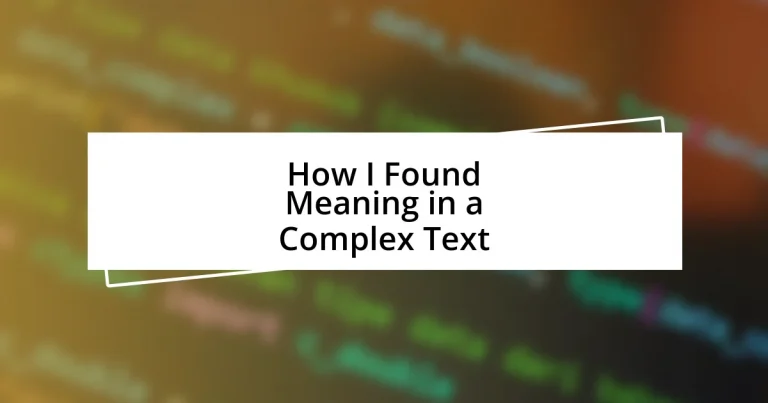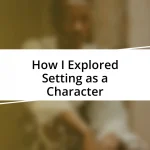Key takeaways:
- Engagement with complex texts fosters understanding; approaching them with curiosity transforms challenges into opportunities for insight.
- Identifying personal connections within texts enhances the reading experience, making abstract ideas relatable and impactful on a personal level.
- Sharing discoveries with others encourages diverse interpretations, deepening understanding and fostering emotional connections through literature.
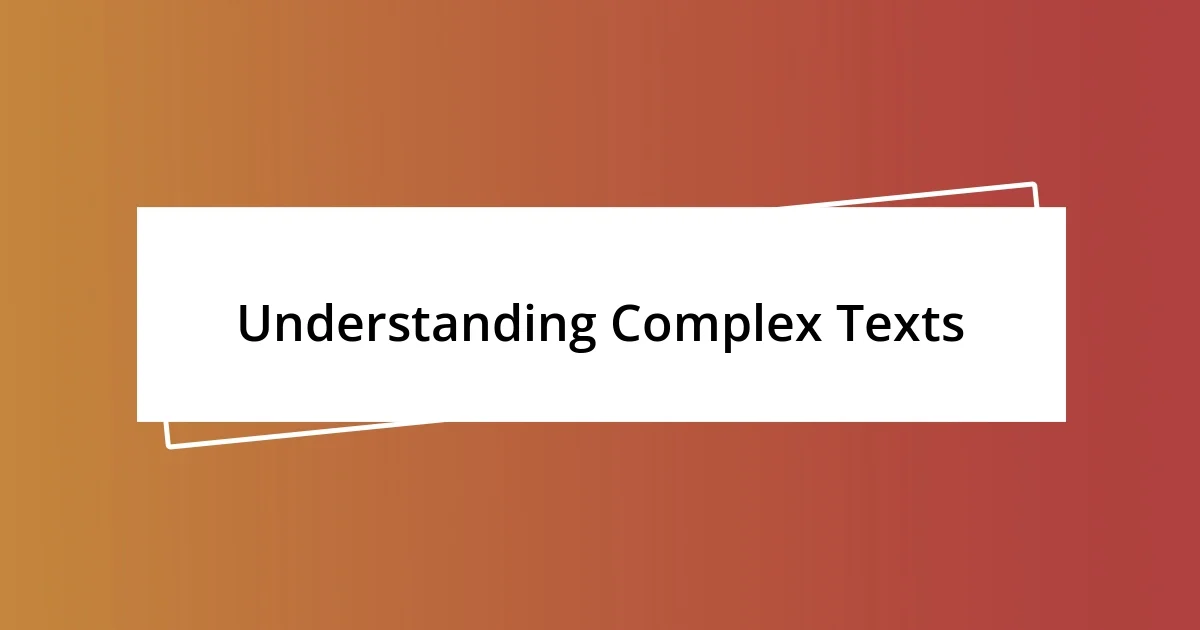
Understanding Complex Texts
Understanding complex texts can often feel overwhelming. I remember grappling with a dense academic article during my college years. At first, I wanted to toss it aside, but something in me pushed to dig deeper—was it the promise of enlightenment?
As I immersed myself in the text, I began to notice patterns and connections that weren’t immediately obvious. The emotions tied to that experience were profound; it was like peeling back layers of an onion, each layer revealing something richer. I realized that complexity often holds beauty and meaning, waiting for those willing to take the time to explore.
Have you ever felt the satisfaction of finally grasping a difficult concept? It’s like stumbling upon a treasure chest hidden amidst the challenges. I found that when I approached complex materials with curiosity and the mindset of discovery, each dense passage became a stepping stone towards understanding rather than an obstacle to overcome.
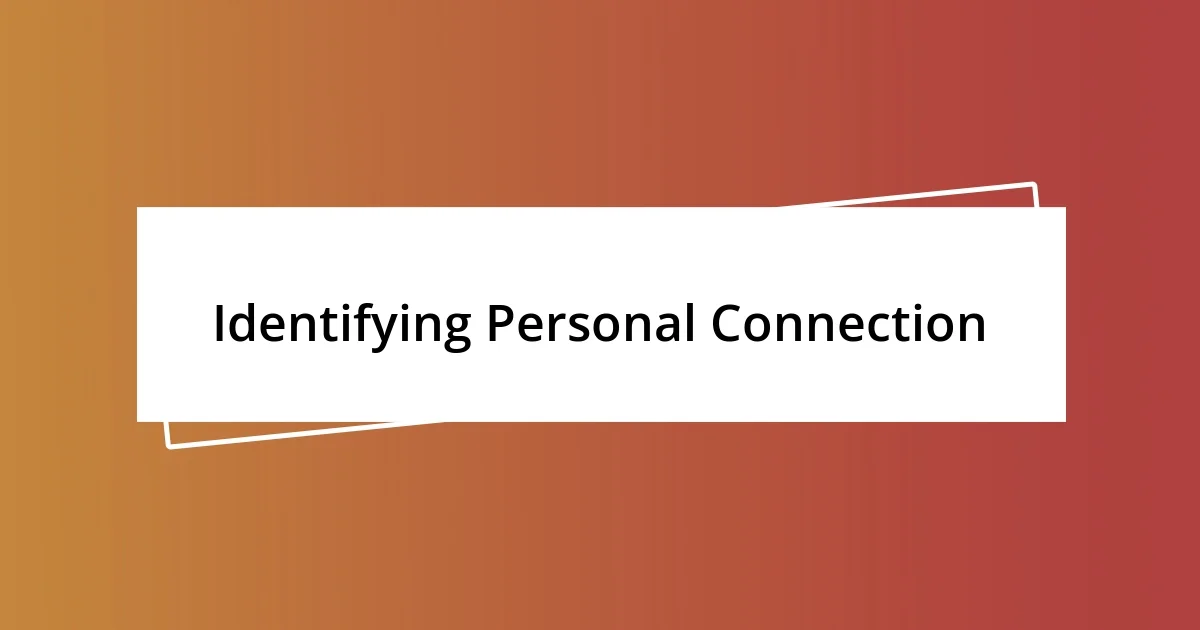
Identifying Personal Connection
Identifying a personal connection in complex texts can transform your reading experience. For me, it often begins with a single sentence or idea that strikes a chord. I still remember thumbing through a lengthy philosophical treatise; one quote resonated with my own struggles. That moment ignited a fire of reflection, helping me see the text as a conversation rather than a mere academic exercise.
When I think about the moments of discovery I’ve had, it’s fascinating to see how they connect to my life. I once tackled a convoluted story about existentialism that seemed alien at first. As I pondered my own work experiences, the themes of purpose and identity became clear. It felt like the author was speaking directly to me, shedding light on my challenges in the workplace. Transforming abstract theories into my realities has made complex ideas incredibly accessible.
This kind of connection enriches our understanding and makes the process feel personal. I find myself asking, “How does this relate to my life?” and more often than not, the text provides answers. These connections serve as bridges between our experiences and the author’s message, paving the way for deeper insights.
| Personal Connection Scenario | Emotional Insight |
|---|---|
| Resonating Quote | Reflection ignites understanding |
| Identifying with Themes | Transforming difficulty into relatability |
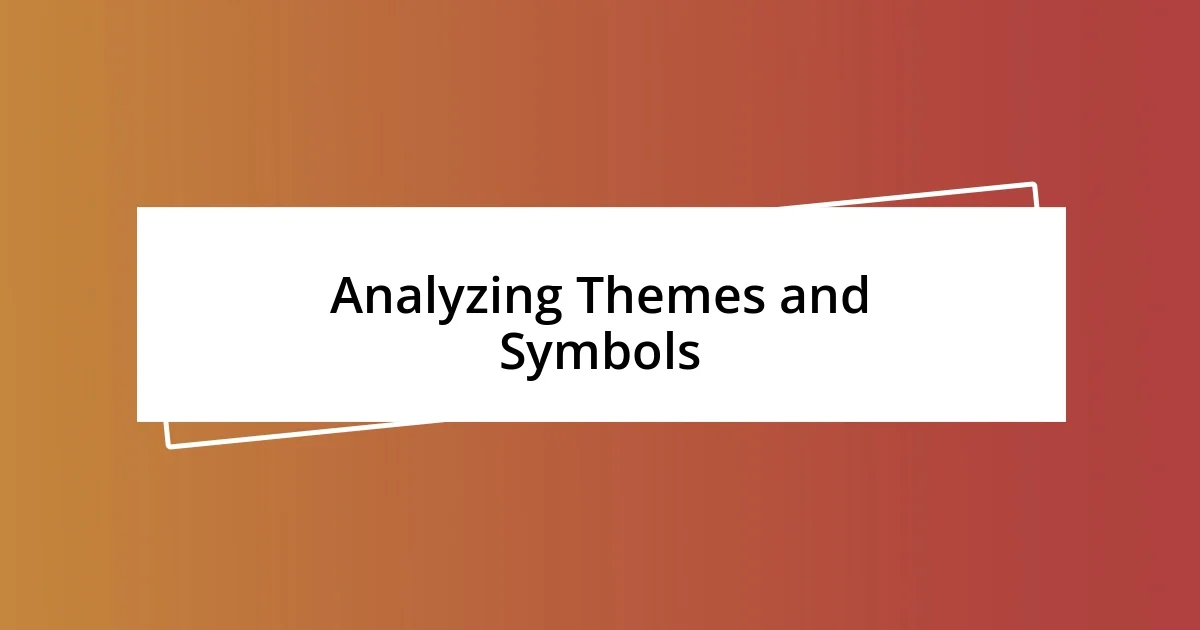
Analyzing Themes and Symbols
Exploring themes and symbols in a text can reveal profound layers of meaning. I remember studying a novel where the recurring symbol of a broken clock struck me deeply. Each time it appeared, I felt a connection to my own experiences of time lost and moments that felt frozen. It opened my eyes to the author’s exploration of memory and regret, and I found myself reflecting on my own narrative within that framework.
When examining themes and symbols, I like to break them down to see how they intertwine. Here are some key elements to consider:
- Themes: Look for overarching ideas like love, identity, or conflict—what message is the author conveying?
- Symbols: Identify objects, characters, or events that appear repeatedly—what do they represent in the broader narrative?
- Emotional Resonance: Reflect on how these themes and symbols connect to your experiences; they often evoke powerful feelings that can deepen your understanding.
This method transforms reading from a solitary task into a shared journey, where personal relevance enhances comprehension and appreciation.
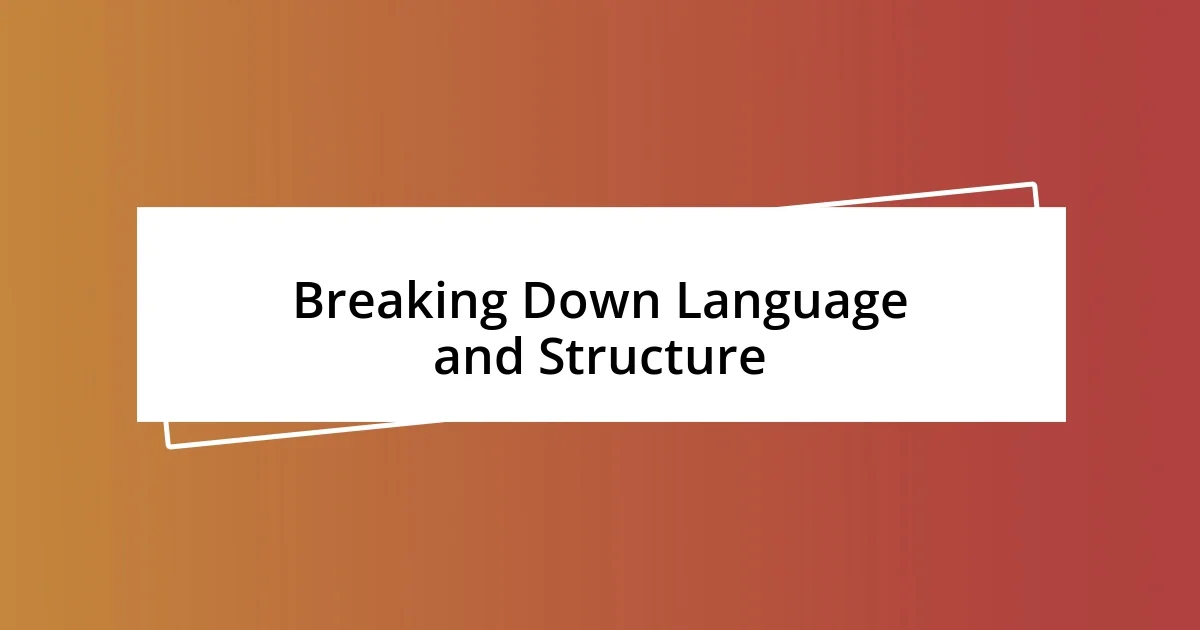
Breaking Down Language and Structure
Breaking down language and structure in a complex text can feel daunting, but it’s surprisingly rewarding. During one of my reading adventures, I navigated through a dense poem that initially seemed impenetrable. As I slowed down and dissected each line, I felt like a detective revealing hidden meanings, which transformed my sense of confusion into exhilaration. How could a mere arrangement of words evoke such vivid imagery and emotion?
I find that paying attention to sentence length and punctuation really shapes my understanding. For instance, long, flowing sentences can create a sense of urgency, while short, abrupt ones often leave me breathless. I remember reading a short story where the author used fragments to convey a character’s fragmented mind. It made me reflect on my own moments of chaos, enhancing my connection to the narrative. Isn’t it interesting how the rhythm of writing can mirror our own feelings?
Breaking down a text also means recognizing the author’s choices in structure—what’s emphasized and why. I once analyzed a novel that alternated timelines, creating tension and suspense. Each leap back and forth not only mirrored my own experiences with memory but also reinforced the theme of time slipping away. How do these structural choices resonate with you? I encourage you to look for times in your life when similar patterns emerged, deepening your appreciation for the text.
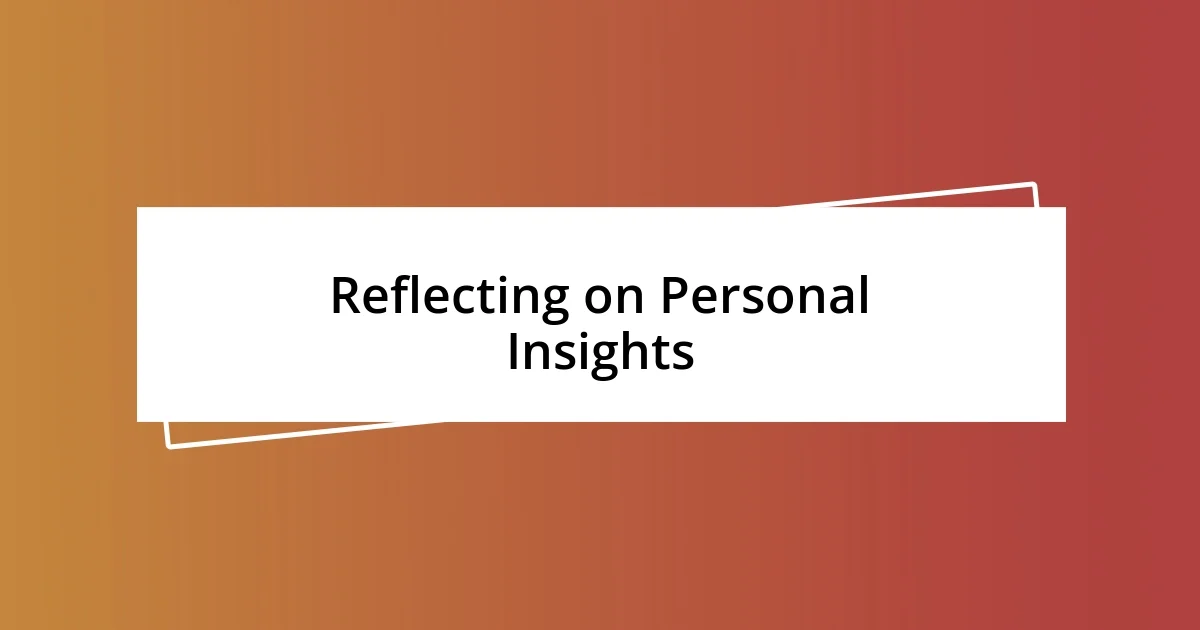
Reflecting on Personal Insights
Reflecting on personal insights while grappling with complex texts often leads me to surprising realizations. I vividly recall one instance where I found myself lost in a lengthy philosophical essay, feeling overwhelmed at first. The more I rested with the ideas presented, the more I discovered parallels to my own life choices—suddenly, the academic became intensely personal. Isn’t it fascinating how words on a page can resonate so deeply with our experiences?
When I take a moment to connect emotionally with a text, I frequently uncover layers I hadn’t recognized before. For example, I once read a memoir that chronicled a writer’s struggles with identity. As I absorbed the narrative, I reflected on my own path and the times I navigated questions of belonging. Those moments made me realize that literature is not just about the author’s voice; it profoundly mingles with my journey. How can such a connection alter our understanding of our own stories?
Sometimes, I find that looking back at my interpretations brings clarity. After finishing a challenging novel, I often jot down my thoughts in a reflective journal. This practice allows me to revisit my initial impressions and chart how my understanding has evolved. I distinctly remember a time I misread a character’s motivations, only to realize, in hindsight, how my own biases shaped that interpretation. Doesn’t this illustrate how our personal lens can filter even the most straightforward narratives? It’s a reminder that reading is not just about understanding the text but also about uncovering ourselves in the process.
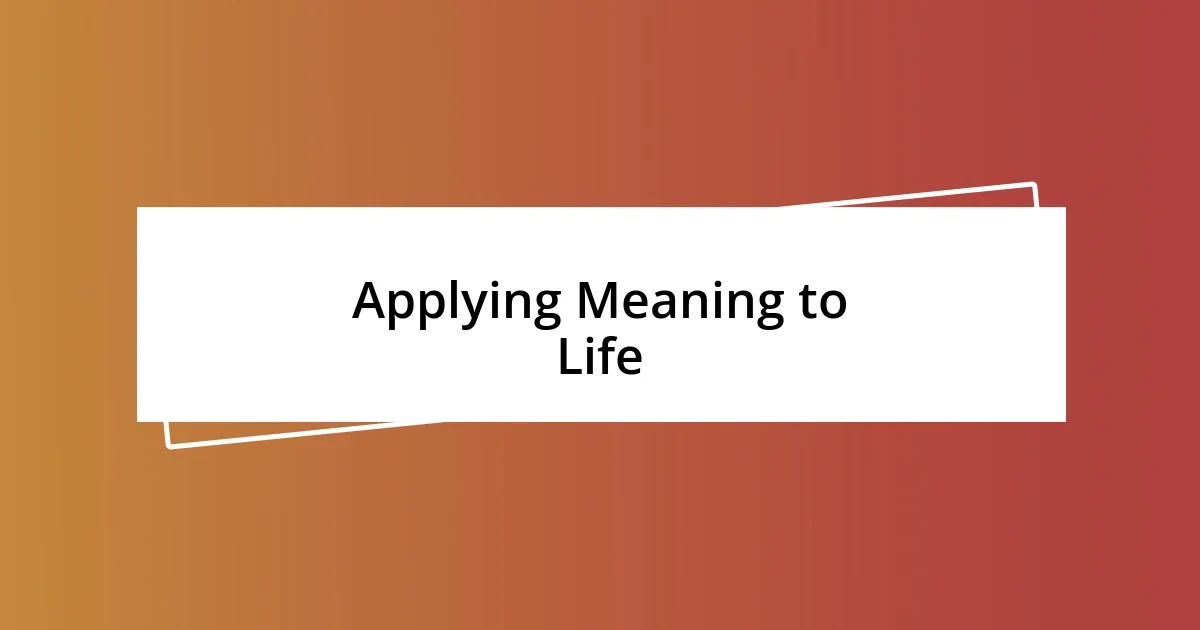
Applying Meaning to Life
Applying meaning to life often requires us to draw parallels between the insights we gather from texts and our own experiences. I remember immersing myself in a graphic novel that explored mental health themes. As I flipped through the pages, I couldn’t help but see parts of myself reflected in the protagonist’s struggles, reminding me of my own battles with anxiety. Isn’t it astonishing how a story can hold up a mirror to our emotions and make us feel less alone?
Diving deeper into the lessons of a complex text, I’ve found my perspective on resilience has transformed. Reading a biography of a historical figure who overcame immense obstacles made me reflect on my own challenges. It sparked a sense of bravery within me, encouraging me to confront my fears. Have you ever had an “aha” moment while reading that nudged you toward a breakthrough in your life?
Connecting the dots between literature and our life journeys can be life-changing. I once attended a book club discussion on a dystopian novel that centered on community and togetherness. As we shared our thoughts, it dawned on me how essential human connection is during uncertain times, echoing the importance of relying on one another in my own life. What if we approached every reading as a chance to discover more about ourselves and our relationships?
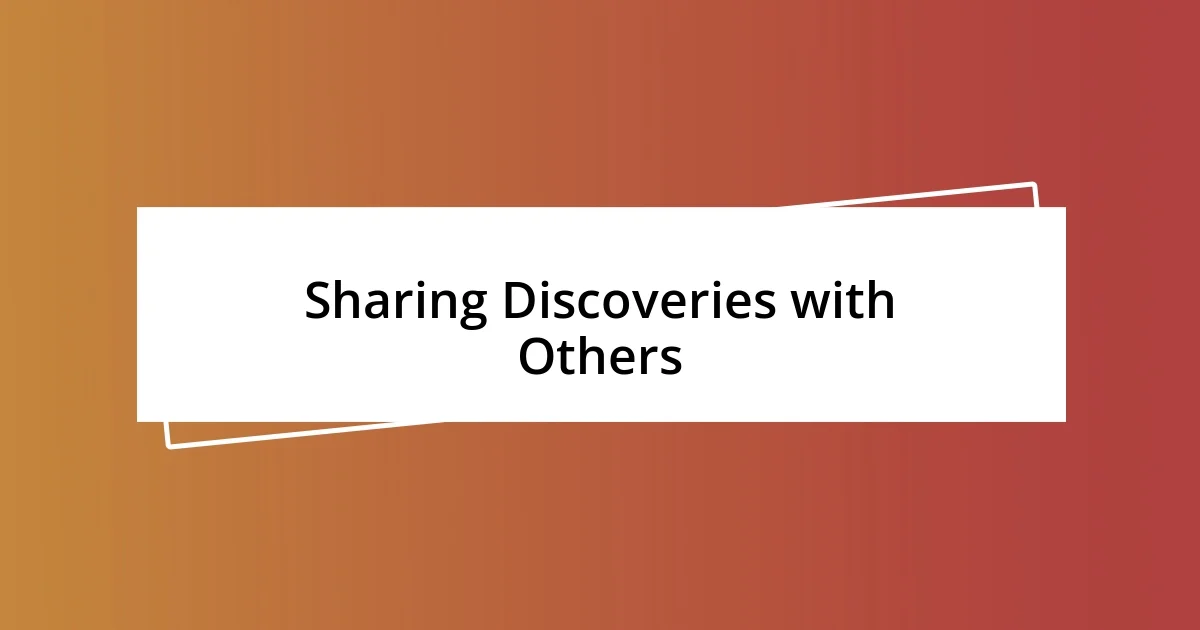
Sharing Discoveries with Others
Sharing my discoveries with others feels like opening a window to fresh perspectives. I clearly remember a casual dinner where I decided to discuss a thought-provoking poem I had recently read. As I spoke about the themes of loss and hope, I saw glimmers of understanding in my friends’ eyes, which made me realize that these abstract concepts can resonate widely. Have you ever shared a text that suddenly sparked a meaningful conversation?
The moments I spend discussing literature often lead to unexpected emotional connections. I recall a lively group discussion about a contemporary novel that grappled with the concept of forgiveness. As we shared our interpretations, one friend revealed how the story mirrored their own journey toward healing after a family estrangement. Isn’t it remarkable how literature can bridge our experiences, allowing us to empathize with one another on a deeper level?
Encouraging others to share their insights can unravel even more layers of meaning. I once facilitated a workshop where participants explored short stories that challenged our views on societal norms. As each person shared their unique interpretations, I found myself enriched by their viewpoints, reshaping my own understanding of the narrative. Could it be that the act of sharing not only helps us process complex texts but also unveils the shared human experience lurking beneath the surface?

